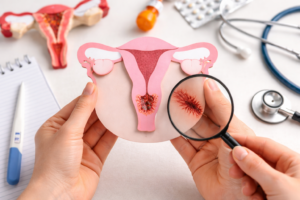Infertility treatments have revolutionized the path to parenthood for many couples. Since the birth of the first IVF baby, Louise Joy Brown, on July 25, 1978, in vitro fertilization (IVF) has become a cornerstone in assisted reproductive technologies (ART). Today, approximately 1% of babies born worldwide are conceived through ART, with IVF leading the charge. At Ova Fertility and Women Care, we understand the hopes and challenges that come with seeking fertility solutions. Here, we delve into the critical factors influencing the success and failure of IVF treatment.
Understanding IVF and Its Importance
IVF is a process where eggs are fertilized by sperm outside the body, and the resulting embryos are then implanted into the uterus. This method has proven effective for a wide range of infertility issues, making it the most utilized ART procedure. Despite its popularity, the IVF success rate varies based on numerous factors. Each IVF cycle is unique, and understanding these influencing elements can help improve your chances of success.
Key Factors Affecting IVF Success and Failure
1. Age
The age of the woman undergoing IVF is the most significant predictor of success. Women between the ages of 24 and 35 have the highest IVF success rate, typically ranging from 60-65%. This is because younger women generally have healthier eggs and higher fertility levels. As women age, the quality and quantity of their eggs decline, which can reduce the success rates of IVF treatment. For women over 35, it’s crucial to discuss realistic expectations and alternative options with your fertility specialist.
2. Type of Fertility Problems
IVF is effective for addressing a variety of fertility issues, including:
– Endometriosis
– Blocked Fallopian Tubes
– Polycystic Ovary Syndrome (PCOS)
– Male infertility factors like low sperm count, poor motility, and abnormal morphology
However, certain conditions may require additional treatments or interventions. For example, fibroids, uterine abnormalities, and ovarian dysfunction might need surgical intervention or donor programs. For severe male infertility, Intracytoplasmic Sperm Injection (ICSI) is often the recommended approach.
3. Previous Pregnancy
A woman’s reproductive history plays a vital role in IVF success. Women who have previously carried a pregnancy to term have higher chances of successful IVF outcomes. Conversely, those with a history of recurrent miscarriages might face more challenges and may benefit from advanced ART techniques such as Preimplantation Genetic Testing for Aneuploidy (PGT-A), Preimplantation Genetic Testing for Monogenic Disorders (PGT-M), or Endometrial Receptivity Analysis (ERA).
Read About: IVF: The Ultimate Guide to In Vitro Fertilization
4. Lifestyle Factors
Lifestyle choices can significantly impact the success of an IVF cycle. Factors include:
– Smoking: Smoking reduces fertility and can negatively affect IVF outcomes. Quitting smoking is strongly recommended for both partners.
– Weight: Both underweight and overweight women have lower IVF success rate. Maintaining a healthy Body Mass Index (BMI) can improve your chances of conception.
– Diet and Exercise: A balanced diet and regular exercise contribute to overall health and can enhance fertility.
5. Choice of Fertility Clinic
The fertility clinic you choose is a crucial external factor in your IVF journey. Success rates can vary based on the clinic’s expertise, technology, and protocols. At Ova Fertility and Women Care, we pride ourselves on our high standards, experienced embryologists, and state-of-the-art laboratory facilities. These elements collectively enhance our patients’ chances of success.
Debunking Common Myths About IVF
Myth: More Embryo Transfers Increase Success Rates
A common misconception is that transferring more embryos leads to higher success rates. However, the human uterus is designed to carry one embryo at a time. While transferring multiple embryos can result in twins or triplets, it also increases the risk of complications. At Ova Fertility and Women Care, we advocate for elective single embryo transfer (eSET) to minimize risks and ensure the healthiest outcomes for both mother and baby.
Myth: Some Clinics Guarantee 90% Success Rates
Beware of clinics that claim extraordinarily high success rates. The global average for IVF success is around 35%, with variations depending on individual circumstances and clinic protocols. Success rates should be transparently discussed, considering factors like implantation rate, pregnancy rate, and live birth rate. Understanding these metrics helps set realistic expectations and enables informed decision-making.
Conclusion
IVF treatment has been a beacon of hope for many couples facing infertility. While it doesn’t guarantee success, it offers a promising pathway to parenthood. By understanding the factors that influence IVF outcomes and choosing a reputable fertility clinic like Ova Fertility and Women Care, you can enhance your chances of achieving your dream of parenthood.
If you are considering IVF treatment, consult with our specialists at Ova Fertility and Women Care. We are committed to providing personalized care, advanced treatments, and unwavering support throughout your fertility journey.









 No need to worry, your data is 100% Safe with us!
No need to worry, your data is 100% Safe with us!
1 thought on “IVF Success Rate: Factors affecting your chances of conceiving a child”
I loved the quality of work here. The design is tasteful, and your written content is stylish. However, there’s a certain tension that makes me think you’re trying to over-deliver. I’ll definitely be back to see more.